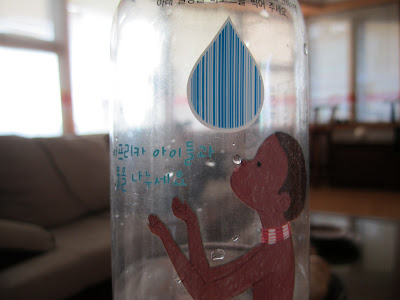Is sustainable tourism an oxymoron?
Yes, and no. The definitions of tourism and sustainability being rather broad and widely misused, the combination of both should not be too much shocking. After all, if we are ready to allow “corporate social responsibility”, “politically correct”, “economic democracy”, ”green growth”, “shared values”, etc. so why not “sustainable tourism”?
As an umbrella concept, sustainable tourism covers a wide range of ideas and ideals, and does not really express any concrete situation. Now it just occurs to me that any word attached to “tourism” may create a pleonasm, an oxymoron or even a paradox, such as “pro-poor tourism”, “eco-tourism”, “green tourism”, “business tourism”, “responsible tourism”, “ethical tourism”, etc. And I also realize that we barely use the word “tourism” alone as if it were absolutely necessary to qualify it, probably because it is too generic and may be a little pejorative. Who wants to be called a tourist anyway? When I lived in France, I remember that being called a "tourist", especially at school, at workd and in the South of France (just an example), was synonymous with being careless, irrespectuous, out of purpose, unconscious, irresponsible, lazy, a little self-centered and full of prejudices ... depending on the context.
But then again, who really knows what tourism is?
As an umbrella concept, sustainable tourism covers a wide range of ideas and ideals, and does not really express any concrete situation. Now it just occurs to me that any word attached to “tourism” may create a pleonasm, an oxymoron or even a paradox, such as “pro-poor tourism”, “eco-tourism”, “green tourism”, “business tourism”, “responsible tourism”, “ethical tourism”, etc. And I also realize that we barely use the word “tourism” alone as if it were absolutely necessary to qualify it, probably because it is too generic and may be a little pejorative. Who wants to be called a tourist anyway? When I lived in France, I remember that being called a "tourist", especially at school, at workd and in the South of France (just an example), was synonymous with being careless, irrespectuous, out of purpose, unconscious, irresponsible, lazy, a little self-centered and full of prejudices ... depending on the context.
But then again, who really knows what tourism is?
I understand this is not the first time I ask this question but I won’t stop doing it as long as I won’t get a clear answer. How about, for example: “tourism is a temporary geographic relocation, involving a sleepover for one or several nights?” In that case, there should be no need to fuss about tourism, which should not be demonized or glorified. What may be a concern is the tendency of tourists to act differently when they are not in their home countries. And I should say, "differently" often means "weirdly" or "irresponsibly".
Some tourists may decide to travel because they want to find and define themselves while others just want to lose their minds or escape a world of limitations while reaching artificial paradises. We may consider the fact that many tourists travel with the perspective of being allowed to act carelessly. Some of them will even choose their destinations according to that prospect, explaining that they are actually encouraged to act irresponsibly, in destinations where everything is done to attract and please them whatever the price to pay (usually not by the tourists).
Some tourists may decide to travel because they want to find and define themselves while others just want to lose their minds or escape a world of limitations while reaching artificial paradises. We may consider the fact that many tourists travel with the perspective of being allowed to act carelessly. Some of them will even choose their destinations according to that prospect, explaining that they are actually encouraged to act irresponsibly, in destinations where everything is done to attract and please them whatever the price to pay (usually not by the tourists).
As a human activity, tourism is fundamentally not sustainable. Otherwise, it could not be called tourism. As an industry, an economic sector or a market, tourism can only be sustainable if both the demand and supply are sustainable.
And how about sustainability?
And how about sustainability?
Between the United Nations Conference on Environment and Development (UNCED) in 1992, also known as Rio Earth Summit, and the Rio+20 United Conference on Sustainable Development in June 2012, the most significant progress achieved seems to be semantic. At least, many people have eventually heard about “sustainable development” even if very few of them (of us?) really understand what it is, what it means and how it can translates in everyday life. Quite unsurprisingly, the word “sustainable” has been trendy enough to be extensively tapped for branding, marketing or political purposes, more as a selling argument rather than a real statement. In that sense, I would say that Green is the Sustainable of the 21st Century. And while sustainable development has been accused of focusing to much on environment, green may be critized for its inability to integrate the social, cultural and economic dimensions. Except that we are now talking about green growth and we might hear about green sociocultural growth.
In the end, I would say sustainable development is a road map that requires a shift in consciousness. It is a long-term strategy, mostly based on common sense, maturity and individual responsibility. It is the process, and not the end, allowing us to change our future so that it becomes “The future we want”.
Still, when it comes to sustainability, there are still a lot of “may be”, “should be”, “could be“, “has the potential to be”, etc. and few “is” or “are” or even “must be”. What’s wrong with us? What do we fear? Doesn’t it seem irresponsible to always procrastinate? The more we fear, the more what we fear will happen. The more we ask for changes and improvements, the more they move away from us. What we need is to create the future now, and we do not have to wait to be grownups to do so.
So where do we stand with sustainable tourism?
Let’s be honest: tourism has impacts and so far, the economic contribution of tourism has not entirely compensated its environmental, cultural and social damages, as money cannot buy anything. Tourism takes a lot and does not give back enough. Tourists use resources and often spoil them, and the price they pay for it is still indecently low. So what have we done so far ?
Though most participants of international conferences are technically tourists, it took time for the global community to include tourism in high level debates. The World Tourism Organization "only" became a United Nations agency in 2003, one year after it has launched its ST-EP (Sustainable Tourism for Eliminating Poverty) initiative in 2002, towards the achievement of the UN Millennium Development Goals. During the first decade of the 21st Century, sustainable tourism has become more and more popular and it has actually created many jobs (and not only international specialists, advisers and consultants. And yes, I am one of them). Several UN agencies now have their own sustainable tourism departments, or initiatives, or foundation, etc. a consequence of the multi-sectoral dimension of tourism. The creation of UN Women does not mean that other agencies are not allowed to talk about women.
What upsets me a little is this growing cult of sustainable tourism as a solution to all problems of our planet: poverty, unemployment, war, climate change, peace, etc. For some people, it seems it has become some kind of religion, with many gurus and followers yet very few practitioners. Instead of hiding behind concepts and professions of faith, let’s just act now so that tourism becomes a meaningful development option, for each individual.
What upsets me a little is this growing cult of sustainable tourism as a solution to all problems of our planet: poverty, unemployment, war, climate change, peace, etc. For some people, it seems it has become some kind of religion, with many gurus and followers yet very few practitioners. Instead of hiding behind concepts and professions of faith, let’s just act now so that tourism becomes a meaningful development option, for each individual.
Where does the truth lie?
I don't know what happened to me recently (ok, I turned 43 last week), but I have just realized how lies have become an important part of our lives. Why do people lie anyway? That is a good question but I will not try to answer it now.
Tourism may also be viewed as an illusion factory, producing, advertising and selling utopias, shams, tales or not-so-white lies. If tourism operators and travel agencies were telling the complete truth to their customers, they would surely have to close their business. Tourists do not always want to hear or see the truth. We can also imagine that tourism will eventually disappear when dreams become as ugly as reality and when it becomes more “painful” to travel than to stay home. This will surely happen if we do not open our eyes.
Tourism may also be viewed as an illusion factory, producing, advertising and selling utopias, shams, tales or not-so-white lies. If tourism operators and travel agencies were telling the complete truth to their customers, they would surely have to close their business. Tourists do not always want to hear or see the truth. We can also imagine that tourism will eventually disappear when dreams become as ugly as reality and when it becomes more “painful” to travel than to stay home. This will surely happen if we do not open our eyes.
These days, we can read a lot about storytelling as a core element of destination branding strategies. Many tourism marketers are very excited about this reinvented technique and some even consider it as an art (read the article Tourism is all about storytelling). For a few enlightened marketers, storytelling may add value to the tourism offering but for many of their colleagues, the main purpose is basically to fool people. Otherwise, why would some tourist companies pay for good comments and feedback about their products? Why would they be honest and sincere anyway, while most tourists do not want to hear the truth? Yes, tourism is a matter of perceptions but we have to admit that there is a huge difference between interpreting and misleading.
While big lies and scams can ruin the best destination branding and sustainable tourism strategies, white lies and other legends may be a nice way to meet the needs of tourist for extraordinary experiences, as in: Lies, damn lies and tourists, Lying to Tourists for Fun and Profit and 20 Lies New Yorkers Tell Tourists.
That is the magic of tourism.
Here is my personal list of small lies that could told to tourists in Seoul
- The drivers of orange taxis (international taxis aka foreigners' taxis) all speak English.
- “Good Restaurant” billboards actually designate good restaurants.
- The subway system in Seoul in the most practical in the world.
- Korean diet is healthy and can make you lose weight.
- The alcohol content of soju is very low.
- Seoul is a cosmopolitan, foreigner-friendly city.
- Products made in Korea are the best in the world.
- There are no beggars in Seoul.
- There are four seasons in Korea.
- All Korean women like to be called “ajumas” as a sign of respect.
- Koreans do not like sweet food.

As mentioned in JoongAng Daily's article, workers peel off layers as firms eye lower energy bills, yet life is much easier for the tourists visiting Seoul since the coolest places in Seoul are for them: coffee shops and department stores. Those places are just obliged to keep their doors shut while air conditioners are on (unlike in Singapour where the shop owners like to share their cold ambiance with people walking on the street).
Now I am just wondering why workers have to endure crazy hot temperatures (even in shorts and sandals) while tourists deserve nice chilly atmospheres. Is it because employees = costs whereas tourists = revenues?
I will therefore dedicate the pictures below to the fight against office warming.
.JPG) |
| Yes, that man is too hot and he had the bad idea of drinking on the top of it (just guessing) |
 |
| Dogani Tang Trail : a new restaurant at Eujiro Il-ga City Hall Don't know dogani ? Read the post : Dogani monster ... |
 |
| South Korea's largest news agency Yonhap's strike over alleged pro-government bias: it lasted over three months and involved camping in front of Yonhap offices. |
 |
| Competition and diversifcation : natural orangeade business is also flourishing in Myeong-dong, with oranges coming from California (would be better if they came from Jeju-do island) |
 |
| Squid snacks : smelly yet healthy, same interest as chewing-gum and much better for the environment (if you close your mouth) |
 |
| Natural clay masks in Myeong-dong, which is also a cosmetics heaven: with lemon and giseng but not with squid |
 |
| Entrance of Myeong-dong shopping eating snacking lemoning district |
 |
| Activist cookie, made in Dokdo Island. |
 |
| Luxury Dogani-tang at Lotte Department Store : same price but heavy air con (sorry I could not resist) |
 |
| Why I like dogani-tang |
 |
| Korea promoting water for Africa |

No comments:
Post a Comment